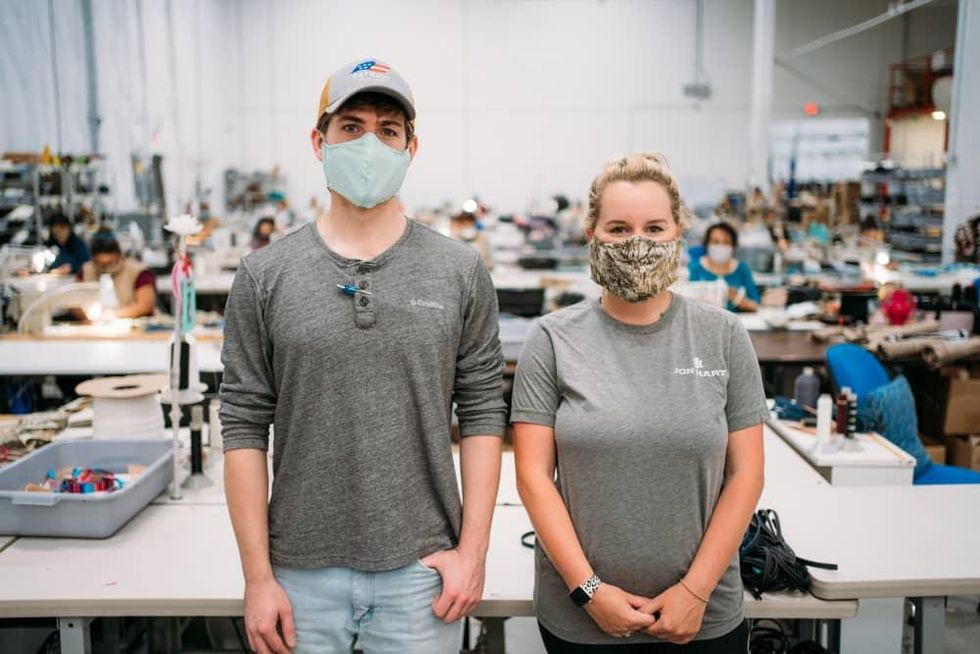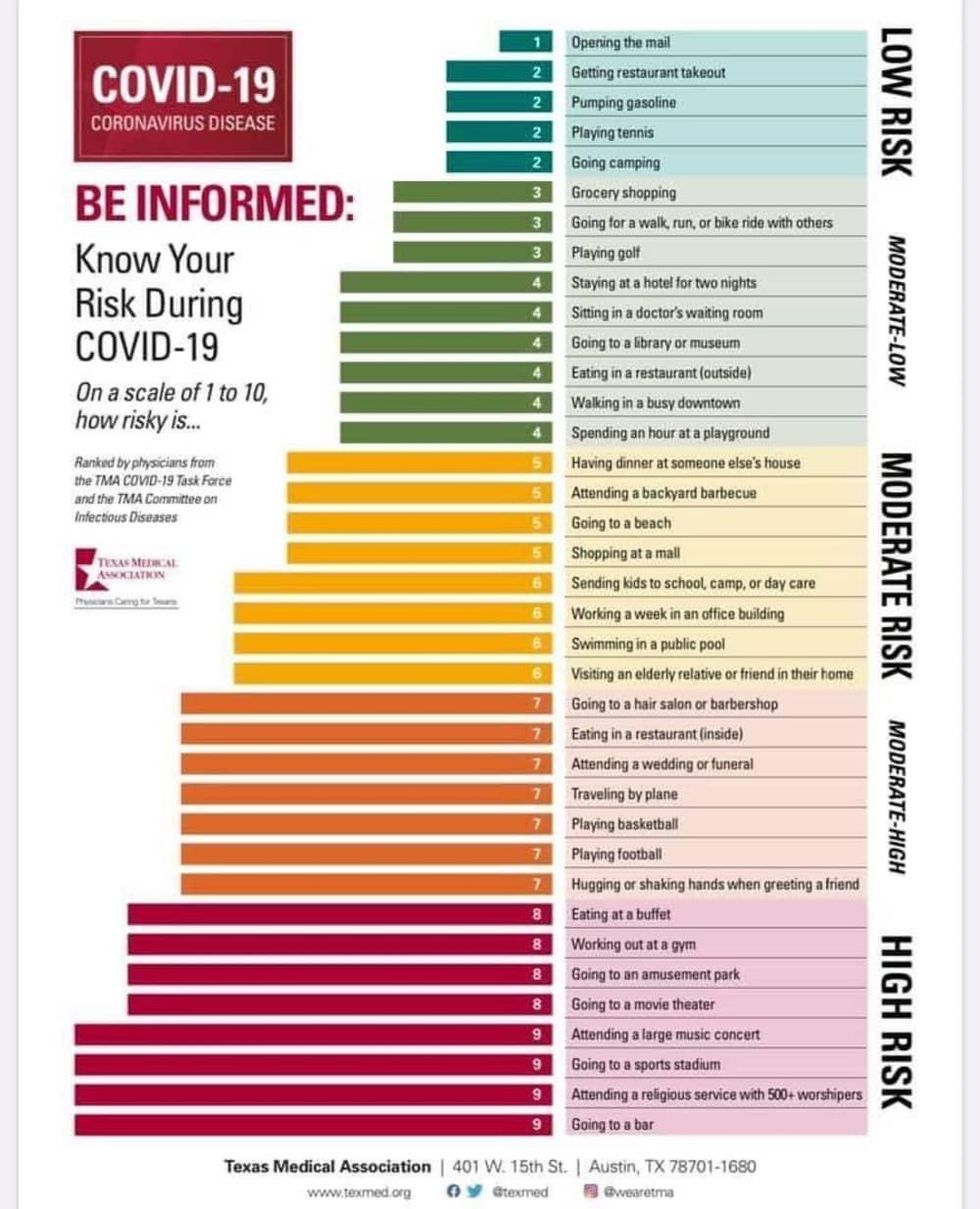what causes exposure
These activities put you most at risk of getting COVID-19 in Houston

Can grocery shopping put you more at risk of getting COVID-19 than going to pick up your children from day care? The Texas Medical Association (TMA) created a chart that shows what activities put you and your family at risk of exposure during the pandemic.
Dr. Ogechika Alozie is an infectious diseases expert in El Paso and a member of the Texas Medical Association's COVID-19 Task Force.
The TMA's COVID-19 Task Force consists of 15 expert physicians from across the state. Dr. Alozie says as the state started to reopen, the community questioned what activities were safe or carried a risk of possible exposure.
The TMA asked for medical leaders and physician's input and created a chart ranking the activities from 'low-risk' to 'high-risk.'
"People are trying to figure out, 'Okay, what can I do?" says Alozie in an interview with CultureMap news partner, ABC13. "As a task force, we were struck by that, and so the questionnaire went out to our group, multiple members answered and then we had the infectious diseases committee of TMA also weigh in on it."
Alozie says there are several factors that were taken into consideration when looking at the risk assessment chart, such as whether the activities are indoors or outdoors, the possible crowd size and how long people are engaged in that activity.
"Going to a buffet, probably not the best idea, right?" says Alozie. "[There's] multiple people, you don't know them, shared spaces, closed, confined, but going for a walk outside increases your health. It's open air. Open air is a great thing, and so that is sort of the spectrum. Then there is a host of things in the middle and again reasonable people can disagree around some of the things in the middle."
He said it's important for people to have some structure or guidance as the state continues to reopen and the pandemic continues.
"It's important for everybody to realize that this is a journey. We're not over this fight," Alozie says. "This is going to last with us during the end of the year. I think one of the things, from a public health standpoint, that we probably didn't do a good job messaging up front was waves. There's going to be one wave then another wave and when people think about waves, the wave goes and then it disappears. Unfortunately, we never got to a stage where our first wave went away."
Alozie said it's important for people to remember the three Ws: wear a mask, wash your hands, and watch your symptoms.
---
For more on this story, including video, visit our content partner, ABC13.


